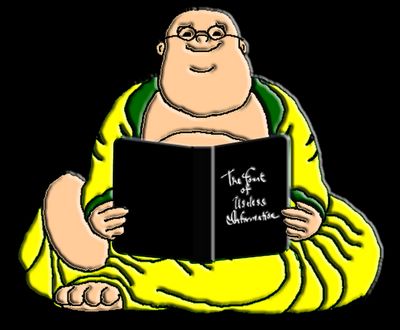We were talking a while back about the old elementary school rhyme about vowels. (I have no idea why) You know which one I mean: "A, E, I, O, U..." You remember this, right? Well, we discussed that and had a disagreement over how it went, but eventually just gave up. Yesterday, something made me think of the rhyme again, and I decided to see if you guys could help with part of the problem we were having with it.
Melissa insists that after the "A, E, I, O, U" it ends with "sometimes Y," but I was absolutely certain that the ending was "sometimes Y and W." Not only does this add an extra vowel to the rhyme, but it also makes it...well, rhyme.
The problem is that the extra vowel is a W. That doesn't really help my case. So, I guess I'm asking you to help with two things. (1) How do you remember learning the vowel rhyme? (2) How can I convince her that W is a vowel?
Update: After doing a little research, I found that there are plenty of people online who are curious why they were taught "sometimes y and w." I've found two basic explanations, each of which I have my issues with: (a) W is a vowel in the sense that it functions to form a vowel sound in a diphthong. (e.g. how, cow, straw, etc.) I'm not so sure about that because then I should have been taught "sometimes y and w, l, r, n or m." (b) The second explanation is that in very (and I mean very) few words, there is no typical vowel, but a w is used to make an "oo" sound. Unfortunately, there are only a couple of these and they are all words that have been transplanted from Welsh and aren't really used much (if at all) in English.
A few links discussing this idea: From the Dictionary.com FAQ, an answer to what words in the English language do not have vowels. A few words are listed, but with the exception of the w as vowel words cwm and crwth, they are all onomatopoeic. Also from dictionary.com, do any words use w as a vowel. Finally, from yahoo answers, a discussion of semi-vowels like y and w.
July 24, 2006
I Nwwd Hwlp
Subscribe to:
Post Comments (Atom)


5 comments:
I teach elementary school and I've never heard of this rhyme! I request that you post an mp3 of you and Melissa singing your respective versions. Maybe the Kids These Days should learn the EBN-OZN song instead.
I've got to side with MK on this one: I never learned it as a rhyme. "A E I O U and sometimes Y" is what I was taught. Why Y? Because of words like "Why," where there is no other vowel. But I suppose you could convince her (and me) that "W" also counts if you could think of a word that has no vowels except "W".
The rhyme was taught to me like this:
A, E, I, O, U, sometimes Y and W.
In linguistics, we say that W is an approximant and is formed like a vowel in the mouth and is "vowel-like". For whatever that's worth. Everything else you said is pretty much right on which leads us to "why would they teach us this?"
Why did they teach us that senteces shouldn't end in a preposition? Infinitives shouldn't be split? Etc. Etc. Because someone thought it should be that way even though they are stupid rules!
I've never heard "W" referred to as a vowel. But I guess it kinda makes sense... It's a "double U" and we all agree that "U" is a vowel.
Using that logic, "W" is twice the vowel as all of the rest.
Yeah.
Hoyl crap, that's so odd. I was just drifting off to sleep last night when I randomly remembered my first grade teacher saying that, and I though "I still don't understand WTF." Kinda weird that you addressed on your blog recently as I haven't thought about the rhyme for years.
Post a Comment